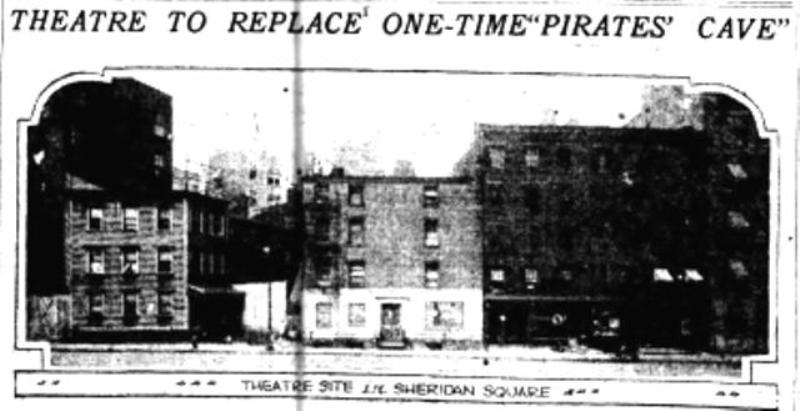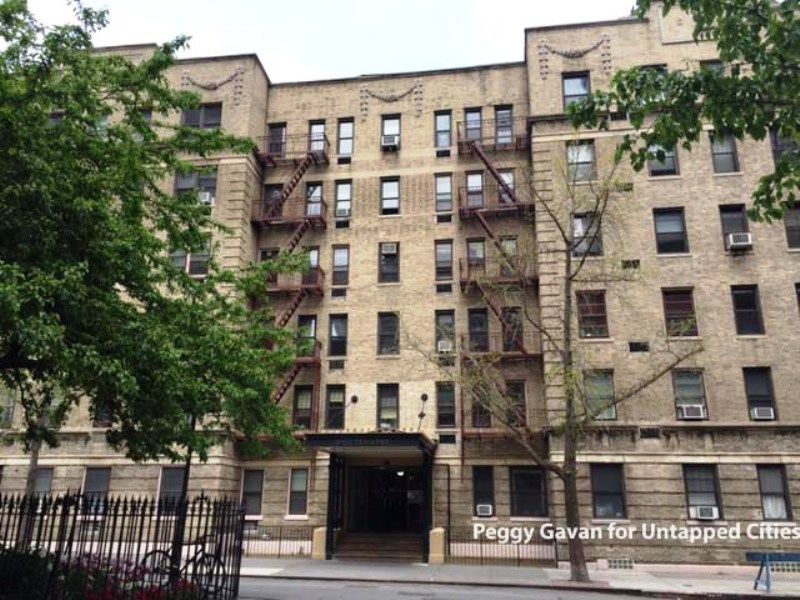Last-Minute NYC Holiday Gift Guide 🎁
We’ve created a holiday gift guide with presents for the intrepid New Yorker that should arrive just in time—


In 1916, Don Dickerman opened a tearoom called the Pirate’s Cave at 133 Washington Place in Greenwich Village. Tearooms were all the rage in Greenwich Village at this time, particularly around Sheridan Square, where one could find such quaint dining establishments as the Mad Hatter, The Mouse Trap, and Will O’ the Wisp in the tiny, dark basements of old brick and timber buildings. Although he called it a tearoom, the Washington Place eatery primarily served as a place to display the hand-painted pirate-themed wooden toys that Don Dickerman made in his nearby Sheridan Square art studio.
The Pirate’s Cave was what one would call a “theme restaurant” today. As Anna Alice Chapin wrote in her book Greenwich Village (1920):
“It is a very real pirate’s den, lighted only by candles. A coffin casts a shadow, and there is a regulation “Jolly Roger,” a black flag ornamented with skull and crossbones…There is a Dead Man’s Chest too,—and if you open it you will find a ladder leading down into mysterious depths unknown.
“It is the most perfect pirate’s den you can imagine. On the walls hang huge casks and kegs and wine bottles in their straw covers,…all the signs manual of past and future orgies.”
By March 1918, The Pirate’s Cave and other tearooms had abandoned ship at 133 and 135 Washington Place. (Apparently, Don had been ordered to walk the plank by Judge Wauhope Lynn in a landlord versus tenant dispute.) Don Dickerman moved over to 8 Christopher Street, an 1849 three-story former stable, where he and a female partner opened another buccaneer-themed establishment called the Pirate’s Den (each floor represented a ship’s deck).
The Christopher Street structure sustained damage in a fire on October 25, 1920; another fire in April 1929 completely destroyed the building and killed 15 cats and several birds, including Robert, Don’s macaw. Shortly thereafter, Don took his buccaneering concept to other cities, including Miami, Washington DC, and Los Angeles.
In 1919, New York resident Margaret A. Huntington purchased all of the buildings from 129 to 135 Washington Place. She then partnered with cotton broker Spencer Waters and filed plans to construct a $200,000 theater on the site. These plans all fell through in a nasty love triangle (or love square).

Nos. 129 to 135 Washington Place (right to left) were scheduled to be demolished and replaced with a 1,000-seat theater in 1919. The old Pirate’s Cave was in the center building, and next door to the left was No. 135. Image via New York Herald, December 21, 1919
According to Supreme Court records, sometime around 1923 Margaret Huntington “married” Clinton Mudge Hall. She had met Mr. Hall a year before through their mutual business partner, Spencer Waters, when she was still married to Mr. Huntington (first name unknown) and Clinton was still married to Mary Austin Hall. Reportedly, while on vacation together in Palm Beach, Margaret became smitten with Clinton and Mary fell hard for Spencer, who had recently left his wife. The new couples decided that if all four got divorced from their current spouses, they could then marry their new loves.
By this time, Waters had reportedly spent $100,000 on the Washington Place theater project. The project fell through due to zoning regulations and Margaret Huntington — now Margaret Huntington Hall — sold the buildings. Spencer never did marry Mary Austin Hall, and it’s not known whether he ever got his money back.
In the end, the buildings were demolished in 1924 and replaced by 129-135 Washington Place (present-day 13-15 Sheridan Square). The six-story elevator building, designed by John Wooley, has 52 residential units — a first-floor, one-bedroom condo was recently listed at $3,395 a month.

Sheridan Square Arms at 13-15 Sheridan Square
For more on Greenwich Village, check out the 6 Hidden Alleys and Small Private Streets in NYC’s Greenwich Village. Also see the NYC apartments of Jane Jacobs. Get in touch with the author @HatchingCatNYC
Subscribe to our newsletter